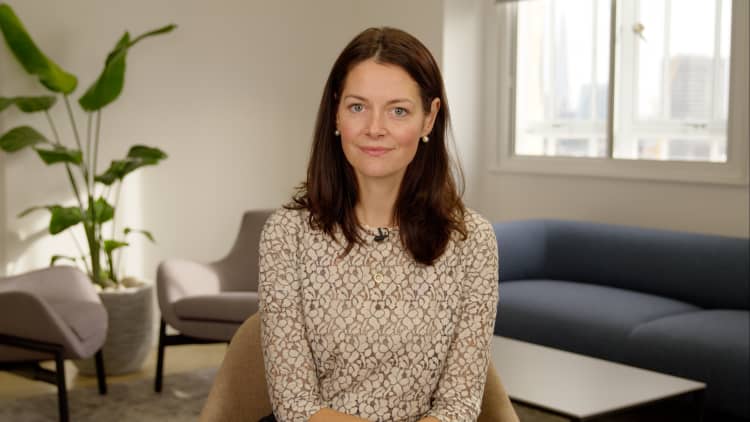There's a paradox about applying for jobs: You need experience to get the job, but in many cases, you need the job to get experience.
It's an especially common hurdle for recent grads and early-career employees. But this circular logic might discourage anyone, regardless of career stage, from pivoting into a new industry.
Take 30-year-old Nic Fink, a swimmer on the U.S. national team who competed at the 2020 Tokyo Olympics and continues to take home championships and break his own records.
Despite Fink's success, he knows that he won't be able to compete forever, so he wants to set himself up for life after swimming. It hasn't been easy, since most of his work experience has taken place in a pool, not an office.
"Not that I regret my career in swimming, but I think it kind of stunts your growth a little bit as I move into that adult, post-swimming life," Fink tells CNBC Make It.
Many of his teammates have day jobs outside of competition and training, but he says they are usually swim coaches or something else related to the sport. Fink, on the other hand, wanted to break into engineering.
Though he studied engineering during his undergrad years at the University of Georgia and earned a master's in electrical engineering at the Georgia Institute of Technology, Fink had no track record in the engineering industry. As a result, when he set out on a job hunt, he was bound to encounter the employment experience paradox.
He says he entered the candidate pool "with a resume that's not very robust when it comes to real-world engineering experience."
But Fink managed to land a job at Quanta Utility Engineering Services, where he has worked as an assistant project manager since March.
Here are his three tips to secure a job without a built-out resume in the field:
Be 'completely honest'
Sometimes, interviewing for a job may feel all about spinning your story the right way — playing up your strengths and trying to hide your weaknesses. But Fink says honesty, not spin is what landed him his engineering job.
"I went in completely honest in the hiring process," says Fink.
He knew his busy swim training schedule paired with his lack of experience might be a tough sell to some hiring managers. But rather than play down those pitfalls, he openly acknowledged them and convinced them to take a chance on him anyway.
"I was pretty upfront with them saying, 'Listen, I'm going to be doing this swimming thing and it's going to take some time,'" Fink says.
He made his case by referencing his time in graduate school when he was managing academic commitments with his training schedule: "I was able to balance both pretty well."
Fink remembers saying in his interview, "I think I can contribute somewhere and even if that means, for a year and a half, you're teaching me the ropes and then, once swimming is over, you take the training wheels off, then that works."
"I think they were really receptive of that," Fink says.
Leverage the 'intangible things'
It turns out, swimming at a professional level requires skills that go beyond speed, strength and endurance.
"There's a lot of really cool things and I think really intangible things that we learn and we practice through being professional athletes," he says.
Fink worked to explain how this skills from swimming could bring value in an engineering environment.
For example, time management: From high school to college to graduate school, Fink has always been in a juggling act of responsibilities. Plus, swimming has improved his communication skills while running clinics and talking to media.
Professional sports has taught him a level of determination and drive "that's not super common everywhere," he adds.
"I was an Olympian and I know that doesn't really help me be better at software engineering," says Fink. "But I think to answer a lot of their questions, especially in the hiring process, it's trying to tie a lot of [the intangible skills] into the answers."
Those intangible skills can be picked up anywhere, not just Olympic swimming. Honing time management and communication skills, as well as a dedication to excellence can take place in any industry or job. And career experts say having those abilities can boost your competitiveness in the hiring process.
Keep your 'skills sharp'
Having a job in a certain field is not the only way to get experience in that field.
Even before Fink decided to get his master's in engineering, he says he enrolled in online courses on the side of his swim schedule.
His online studies weren't a full-time commitment, but he says it was just enough to "keep my computer skills sharp."
Eventually, he knew he would have to go back to school for a higher degree, but self-teaching was an accessible way for him to stay on top of his goals outside of swimming.
"I knew I had to get started on the engineering stuff sooner rather than later," Fink says.
DON'T MISS: Want to be smarter and more successful with your money, work & life? Sign up for our new newsletter!
Take your business to the next level: Register for CNBC's free Small Business Playbook virtual event on August 2 at 1 p.m. ET to learn from premier experts and entrepreneurs how you can beat inflation, hire top talent and get access to capital.



